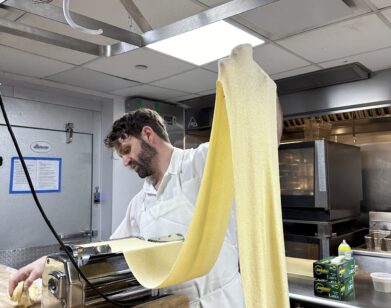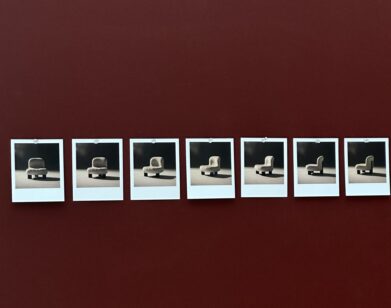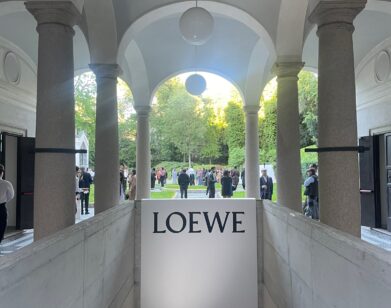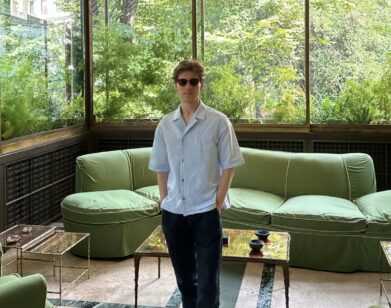What Michael Carroll Writes About When He Writes About Writers
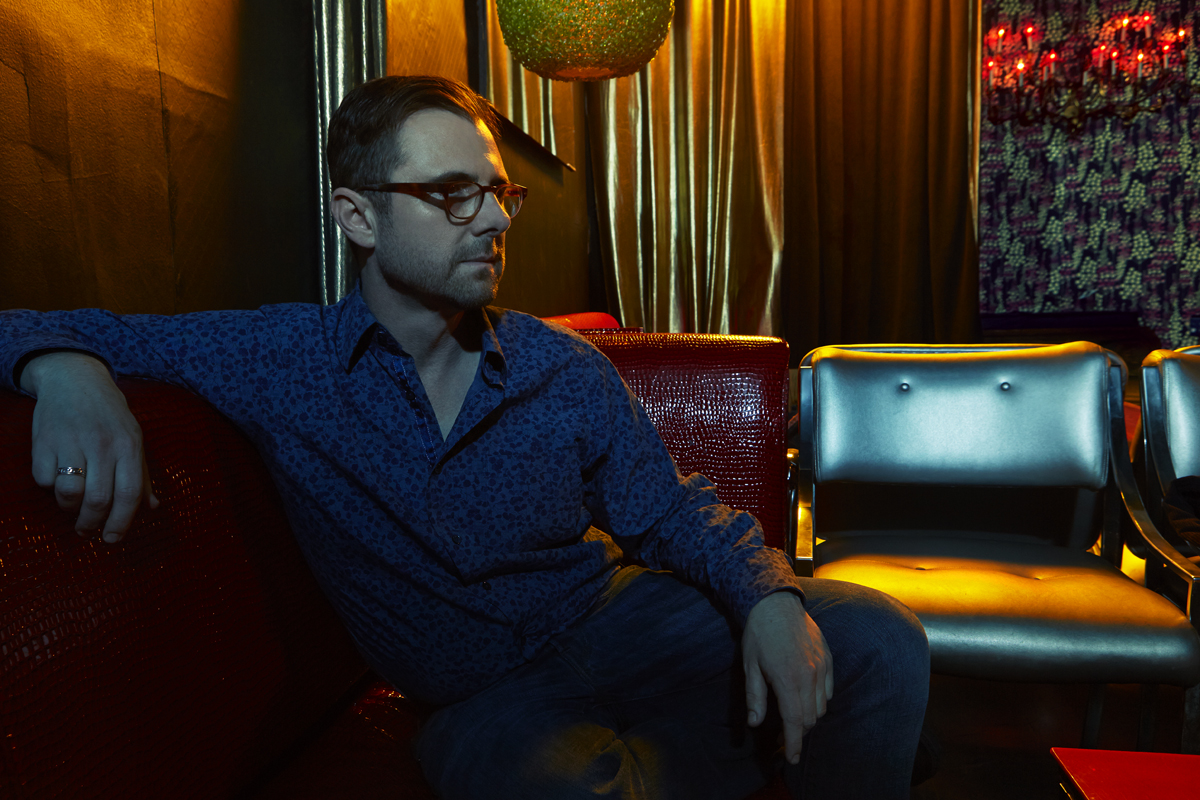
ABOVE: MICHAEL CARROLL AT BARRACUDA IN NEW YORK, JUNE 2014. PHOTO BY SHOJI VAN KUZUMI.
Michael Carroll was already living with Edmund White in Paris when I ran into him one afternoon in 1995 while I was talking to a trick in a little square. They walked by on their way home from lunch at the American Embassy. Wow, I remember thinking, nice life! Though Michael was never, I learned later, enthralled with Paris; in fact, in one of the stories in his new collection, Little Reef, out this week from Terrace Books, the narrator says of the French, “In the realm of unhappiness, they gave the Americans a run for their money.” A not-surprising comment, since the Michael I came to know is a supreme realist: a down-to-earth, level-headed observer who sees the humor and bullshit in things—especially the literary life, which is the subject that binds these tales whose locales range from Key West to Manhattan, from rural Maine to suburban Florida.
I always wondered how this child of Jacksonville (where Little Reef‘s first story is set) kept his head as an unpublished writer living with the likes of Edmund White, and the famous writers among their friends; over the years Michael published a few stories in literary magazines, but none of them are in this new collection, which he wrote in a single year after his partner had a stroke that gave a new urgency to their lives. So what I wanted to know first off was: How did this book happen? —Andrew Holleran
ANDREW HOLLERAN: First of all, congratulations on the book. It’s really wonderful and unlike anything else I’ve read. It’s divided into two sections, the stories. Part I is “After Dallas,” which refers to Kennedy’s assassination, and Part II is “After Memphis,” Martin Luther King. Let me really cheat and ask you about the epigraphs, which I loved.
CARROLL: [laughs] I knew that you of all people would ask about that.
HOLLERAN: Yeah! One of your epigraphs is a very long passage from Henry James’s novel, The Bostonians, and I just love it. And the second epigraph is a tiny little thing from a Faulkner novel called Sanctuary, which runs, “‘They’re just Baptists,’ Miss Jenny said. ‘What about the money?'” [laughs]
CARROLL: [laughs]
HOLLERAN: So what were you thinking? What are the epigraphs about?
CARROLL: Well, the perceived lesbian tension in The Bostonians, where a younger woman is taken under the wing of an older, established woman. That book is so innocent but to us, it just reads so much differently than it would’ve at the time. Don’t you think?
HOLLERAN: You made me want to read The Bostonians again. It’s not a novel I’ve read in a long time. But the dialogue is wonderful: “‘Do you live here all alone?’ ‘I shouldn’t if you would come and live with me.'” Pow! Okay, so what’s, “‘They’re just Baptists. What about the money?'”
CARROLL: That was just something visceral. I was reading Sanctuary and since Faulkner is from near Memphis and there’s so much tension in my life that I put in the writing about religion, particularly Baptists. You know, you live down there in north Florida, and the Baptists are like the Vatican of North Florida.
HOLLERAN: All of the stories in Little Reef are brand new; they were written in the last year, after your partner, Ed White, had a stroke and, you’ve said, “Life and writing became more urgent.” How did this book happen? How did you decide to write all new stories? How did you resist the temptation to include other stories; and do you divide your writing into two epics now?
CARROLL: The thing is that my writing changed. The writing itself, the way I wrote became more urgent, not just the motivation or the motive, but the way I write. My old style was a lot more baroque. I think you know what I’m talking about.
HOLLERAN: You mean wordier? Or more literary?
CARROLL: Yeah, wordier, with more complex sentences. And I just got impatient with that because that’s so hard to edit. [laughs] It takes too long to edit and people never get to the end of the sentence. In skilled hands, like yours or Ed’s or, of course, Proust or James, you can write those great sentences.
HOLLERAN: You mean you were aspiring to too-beautiful sentences and they were getting in the way?
CARROLL: Yes, and they weren’t getting published. [laughs]
HOLLERAN: [laughs] That’s getting in the way! Well, did you have a eureka moment? Were you in the bathtub? What happened that led you to this incredibly fluid style—which I really thought does capture life very well?
CARROLL: I guess I just got really tired of writing something new and making 20 copies and 20 cover letters and sending them out to the 20 different places and getting completely rejected.
HOLLERAN: [laughs] In the old days we were told never to write about writers—I always thought that was odd, since Proust’s novel is basically about a writer looking for his book. But a lot of these stories are about writers. And they’re not only about writers and writing, but some of them are about MFA programs. One of your good stories is about the wife of an MFA teacher and her loneliness, which was wonderful. I thought, “How did Michael get into that?” You’ve written a lot about writing, and the other thing you’ve done is you have completely made a mosh pit of the boundary between fiction and nonfiction, autobiography and imaginative writing. So that in a single story, someone who knows a little bit about you and Ed can find a paragraph and think, “Oh, this is their life.” And then you go away from that into something else. How did you come to dissolve all these boundaries?
CARROLL: I guess it’s because I didn’t have a whole lot of time, and so I decided I wasn’t going to reject an idea because it was scary or because people say don’t do it. I think what happened was, for a long time I really liked the auto-fiction mode, and stuff like John Irving, who does all different versions of his life. In fact, John Irving just read the book and he said he thinks the critics will probably not like the fact that it’s about writers, but I do.
[Carroll and Holleran’s phone transmission is cut off]
HOLLERAN: I heard those beeps, Michael. Did you hear the beeps?
CARROLL: Yeah, but I thought it was…
HOLLERAN: Some kind of technology measuring us.
CARROLL: I thought it was the NSA.
HOLLERAN: [laughs] We will press on! We know where we were cut off and it was really one of the fundamental questions, so at the risk of making it seem tedious to you, I’m going to go back to where that was.
CARROLL: Please.
HOLLERAN: But I also want to say: is this not a moment that Updike would use for a Bech story? [laughs]
CARROLL: [laughs]
HOLLERAN: Do you remember the Bech story where he goes to the island in the Caribbean to sign all those books?
CARROLL: Yeah.
HOLLERAN: Do you remember the Bech story where he goes to the little town in Pennsylvania where his fan has collected all of his work and his fan is horrified at meeting him?
CARROLL: Yeah. He’s a Mennonite in a very sorted little house. It has a closet full of books by all of Bech’s rivals.
HOLLERAN: [laughs] Right! Are you going to read the Updike biography?
CARROLL: I’ve read it. I read it in January.
HOLLERAN: Oh my god, you read it early. What did you think?
CARROLL: I thought it was a little bland, to be honest.
HOLLERAN: Me too!
CARROLL: [laughs]
HOLLERAN: Very considerate but nothing revelatory at all.
CARROLL: Right.
HOLLERAN: Except that he said the Lord’s Prayer with his children every night at bed and that he changed the screens at his mother’s house in the spring.
CARROLL: Oh yeah, exactly. Once a year.
HOLLERAN: But that was it! Oh, and also, the sex they had, which really made the St. Mark’s Baths look tame.
CARROLL: [laughs] Well it was in the ’50s, or at least the ’60s, I guess.
HOLLERAN: In your book, you have recurring characters, Scott and Perry: Scott, the young writer who’s basically kind of the narrator in some stories and another third-person character. And you have a character named Josh who reoccurs. Sometimes I think he’s the same person, and sometimes I’m not sure. You go into the mind of an elderly man in Key West who’s being interviewed about his wife who left him. You go into the mind of the three men in Pascagoula, Alabama. I hate to use the term—it’s so brutal and ugly—but there’s a fag-hag story in which a young woman is in a bar with two gay boys. I thought that was wonderful. So what I’m saying is, you are mixing and matching and Cuisinart-ing all these things within stories and among stories, and I wondered what gave you the…
CARROLL: Freedom? Agency?
HOLLERAN: Yep.
CARROLL: [laughs] I said something before about not being self-conscious, just getting going. When I decide that something needs something else, that might be the thoughts of the other character. Who says that when you’re writing in the mind of one person, you can’t jump suddenly, even within the context of an independent short story, into the mind of another? Films do it all the time, either with voiceover or when we look at the expression of the actor playing a character that nobody else sees—in a way we’re in the mind of that character. And we can jump around. I have a lot of friends who are slightly Nazi-ish about this issue.
HOLLERAN: [laughs]
CARROLL: They’ll say something like…you know like when you’re a child and your mother says, “You don’t need to do that.” You’re like, “I know I don’t need to…” But they say, “You don’t need to change point of view.” But that’s just a hang-up, and I don’t have that hang-up anymore.
HOLLERAN: What are the rules you do observe? To make it interesting?
CARROLL: Yeah, try to make it interesting. Don’t land in one place for too long. In other words, when you write those expositional paragraphs, they can be very psychological. It can be very hard to change paragraphs and go back to base with the action and dialogue and the movement, you would call it. And yes, the psychology is part of the movement, but the further into it you go, the harder it is to find the return maneuver to get back.
HOLLERAN: You are aware of writing as a mechanism in a way that I am not. I often read interviews with writers who say they have withheld information from the reader until a certain point, which you’ve done. You said in your interview that you have asked, “What can I leave out? What things have I left out?” I find this remarkable. I wish I were that rational about it. What’s good is that even though you have obviously thought extensively about all these things, that the end result does not show any of that. It is not in any way laborious, or you’re not aware of what’s being done. You’re just in this world in which life is on the page. You said, “I published in lots of magazines in that old way where I was trying to create a classical, climactic structure. And then Ed had a stroke and was suddenly helpless. Once he started getting better in a few months, I would leave the apartment and just write for four hours a day.” What do you mean, the classical structure?
CARROLL: The classical structure is the Freytag Pyramid: The rising action, everything leading up to the climax, and then a denouement if you want that. I just begin, and it’s like one hand washing the other. I just keep trying to get the elements to interact with each other. And then I look for those moments of character thought, or some kind of weird action that happens—a stranger with a weirdly decorated bicycle, or something like that; observational stuff. But I no longer think in terms of, “What am I moving towards?” In a way that feels like you’re moving up, you know?
HOLLERAN: Because there’s no epiphany in your story.
CARROLL: Right.
HOLLERAN: But there is sometimes. Some of your stories, I felt, simply come to a stop, and others end with zingers. The last story, “Unsticking,” which is a story in Key West about a middle-aged gay man who starts running into this young couple in the bars—a woman and a gay boy. It has an incredible flash-forward at the end and ends with this amazing zinger of a last line, which is very powerful. But that was the exception: More of the stories simply just seem to stop. Is that again your rebellion against classical form, or what?
CARROLL: There’s never a conscious rebellion. It’s the refusal to feel self-conscious about not hammering it into the shape that we’ve been taught for centuries it has to be in. It’s just that I’m not very good at that. I can’t do the same in every story, where Oedipus puts his eyes out.
HOLLERAN: [laughs] Good thing, too. How do you regard the stories you wrote in the old mode now?
CARROLL: Every once in a while I pick them off the shelf and I look at them and I go, “They’re okay.” Sometimes I cringe a little just because they’re so over the top, overwritten. I mean some of it’s really baroque and then some of it’s kind of interesting in a formational way. I’m actually very grateful—and first writers often say this and it’s usually true—I’m just grateful that I didn’t publish that earlier stuff in book form.
HOLLERAN: You would’ve been embarrassed by it?
CARROLL: Either embarrassed, or it would’ve marked me out as a kind of mediocre. In other words, if I published the novel I wrote in my 20s—it’s a perfectly good first novel for a young person. But it’s not the first book for a 50-year-old. This, I thought, had a certain maturity in that it was daring, but also I don’t feel that it’s belabored. I don’t feel that it works too hard to make an impression.
HOLLERAN: How did you choose “Little Reef” as the title story?
CARROLL: Process of elimination. Edmund didn’t like Avenging Angel. He said it was too mid-century kind of melodrama.
HOLLERAN: It’s different. It’s not like anything else, and you have no idea what it means until you learn when you read the story. You say that it’s a big relief to have a book published—that people suspected you as a dilettante all the years that you were writing but publishing in just little magazines; and that now you have accomplished something. You have produced something, you’re a writer—a feeling that I understand totally. The prepublication life is really awful. Now that you have this new, breakthrough method of writing, is your whole life going to be from now on material for you? How do you feel now about going forward with your writing and your life?
CARROLL: I picked up a lot of steam once I had written through those sequences of stories. I would say that to the non-autobiographical and the more autobiographical. I picked up steam and I drafted a novel last year, and then I revised it, and then I’m going to revise it again while at the same time writing new stories. There are a bunch of old stories that have never been published that are in a similar vein stylistically that is simpler and more rapidly evolving. I’m going to keep up with that, but I also have so many responsibilities. My parents are now in their 70s, and my husband is in his 70s. There’s a lot of movement I have to do.
HOLLERAN: Movement—you mean geographical? From New York to Key West?
CARROLL: Yeah, I have to get around and see people. Go to Memphis and stuff like that. And I’m trying to learn some kind of grace. Now that I work, I have a blocked out time every day that I work. I can do the other things I have to do as the housewife— the shopping and the going to the post office. And I’m relieved because I work more quickly and I don’t feel like I’m getting behind, the way I used to feel. Just to have a book is a beginning and it can be like a stone that I can start building. I want to start teaching again. I taught for years.
HOLLERAN: You and Ed would take something called “plot walks.”
CARROLL: Yeah, to talk about what he’s planning on doing. He’ll read to me and then I’ll say, “What’s next in the story?” And then he’ll say, “Well I was thinking of…” this or that. And we would talk about it. I think it’s a certified term.
HOLLERAN: Really? The only expression I’ve heard like that is “perp walk.”
CARROLL: [laughs] Catwalk.
HOLLERAN: [laughs] The two of you do fertilize each other; except as you say, you keep your writing to yourself until it’s done.
CARROLL: Well, he slowed down considerably after his hospitalization, and he needed help. When he was writing Jack Holmes [and his Friend] he was just talking about ways that he thought he should move forward in his work. But long before I ever met him, he did that with The Beautiful Room is Empty. It’s very short, and the writing is very, very spare.
HOLLERAN: One more technical question: how important is plot to you in your writing?
CARROLL: I’m not very good at plot. I call it sequencing. It’s cause and effect, the way plot is. Movement happens because of other movement, or counter-movement. All plot is, is conflict plus complication, and as many complications as you want. And the more complications, the more farcical, probably, or tragic or whatever. But I can’t think in terms of plot. And I think that most readers of what we do, the so-called literary fiction say, “I’m more interested in character.”
HOLLERAN: Let me ask you this in closing: What is your dream at this point? Physically or geographically?
CARROLL: Um, I’m very middle-class in that way. The dream is to have a second place to go to, to get away from New York, so that I can learn to have peace and quiet without having to create it artificially by sticking earplugs in my head and going to a dark, smelly, deserted lounge.
HOLLERAN: [laughs]
CARROLL: I really, truly do want to teach, because I really want to talk to students and encourage them. I’m very good about talking about things without it sounding too artificial or structured or circumscribed. It would be to stay in relative motion, you know, to be teaching and to be going away for part of the summer and part of the winter and to just keep writing. To not let too much time go by that I haven’t written or published.
MICHAEL CARROLL’S LITTLE REEF AND OTHER STORIES IS OUT NOW.
ANDREW HOLLERAN IS AN AMERICAN ESSAYIST AND FICTION WRITER. HIS MOST RECENT WORK IS GRIEF: A NOVEL.


